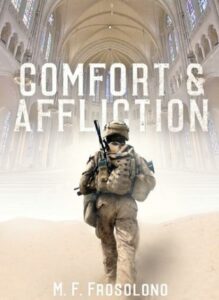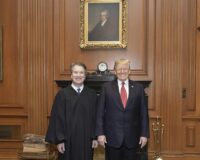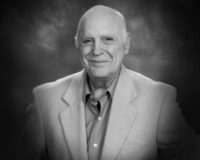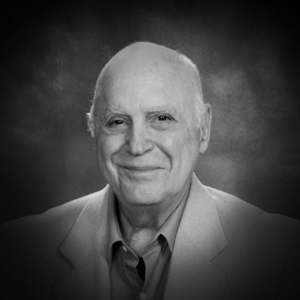The pending publication of my newest books—Going Forward, a novella, and Indomitable, a novel—prompted me to reflect upon the writing aspects of my life.
My writing life began in Ms. Mildred McCain’s freshman English class at LaGrange (GA) High School. At that time, freshman English classes traditionally studied Shakespeare’s Julius Caesar. A student mock trial of Brutus formed an important feature of the class. Brutus joined a conspiracy Cassius led to assassinate Julius Caesar in order to keep him from becoming a dictator. Ms. McCain, after a Friday class, assigned me to be the lawyer defending Brutus. When I returned to her class the following Monday, she asked me how I intended to carry out my assignment. I told her. She nodded her approval but insisted I write my defense and memorize it. Classmates not participating directly in the mock trial formed the jury. In an example of jury nullification, my defense led to Brutus’ acquittal. Subsequently, Ms. McCain sent me to all the English classes to read my defense.
The next year, I—with some trepidation—found myself in Ms. Raymond Smith’s English class. She had the reputation of a stern taskmaster. I later learned Ms. Smith had insisted to the principal that I would be in her class. One did not ordinarily disobey Ms. Smith’s imperatives. She also taught Junior/Senior Chemistry. Ms. Smith and my paternal grandmother, Bonnie Ruth (Mama Ruth) Birdsong Frosolono, were stalwarts of the choir at LaGrange First Presbyterian Church. I typically sat then, as I do now, in the second row of pews from the front. Ms. Smith frequently watched me during the sermons, neither smiling nor frowning.
Ms. Smith, at the end of our first class, directed me to return to her classroom immediately after the final dismissal bell rang for the day. I realized resistance would be futile. When I entered her classroom, Ms. Smith directed me to sit at one of the student desks. Surprisingly, she sat at a desk in the row next to me. She fixed me with an unrelenting gaze.
Ms. Smith began, “Michael, I know your family situation and I believe you are developing plans to remove yourself from your present circumstances.” She forestalled my attempt to respond. “I have read the compositions you wrote in Ms. McCain’s class. You have a talent for writing, but that ability must be tamed and nourished. If you pay attention to me and work diligently, I will at a minimum teach you to write a simple declarative sentence. Your ability to write well will immeasurably help you in whatever career you choose to follow.” I learned a lot from Ms. Smith. She was perceptive.
That same year, the school administration allowed me to become the first sophomore to enroll in Ms. Isma Swain’s Journalism class. I audited the class in my junior year in order to write for the school newspaper. I became the editor of the school newspaper in my senior year, and I won statewide awards for my writing.
Ms. Smith’s influence on me did not end with her English class. Her Chemistry class exposed me for the first time to the charm of Science. I decided to pursue a career as scientist due in large part to her inspiration. My writing ability definitely helped me advance in the combined forty years I spent in the Academy and in the Pharmaceutical Industry.
My enrollment in Prof. Jeannie Lee Epps’ sophomore English Literature class at LaGrange College formed another step in my writing life. I first met Prof. Epps in our family tailor shop where I often worked after school and on Saturdays. My young mind thought she was “older than dirt.” Prof. Epps had a distinct way of walking and talking: She took very small but quick steps and her voice was soft and high-pitched. Despite her seeming frailty, her mind was razor sharp. She came to the tailor shop twice each year, in Spring and Fall, to have her new seasonal clothes altered.
Once when Prof. Epps arrived in the tailor shop, she saw me reading Mickey Spillane’s I, The Jury. Prof. Epps approached me and asked, “Mr. Frosolono, why are you reading that example of low-class fiction?”
I replied, “The story is interesting, it moves fast, and is action-packed.”
“Those features, Mr. Frosolono, are not necessarily redeeming characteristics. I urge you to read more serious books, of which you are entirely capable.”
The next time Prof. Epps came into the tailor shop I was reading Ernest Hemingway’s Across the River and Into the Trees. She came to where I sat. “I see you’re reading a more serious book than last time I was here. Do you like the way Hemingway writes?”
By that time, I had read most of Hemingway’s novels. “Yes, Ma’am,” I replied. “I wish I could write as well as Hemingway.”
“Even so, you must strive to create your own writing voice.”
I thoroughly enjoyed, and learned a lot, in Prof. Epps’ English Literature class. Her class stimulated my appreciation of John Milton’s Paradise Lost.
My last major encounter with Prof. Epps occurred shortly before Andrea and I graduated from LaGrange College. I sat on a bench on the side of the open tree-lined space called the “quadrangle” while waiting for Andrea to meet me for lunch. Prof. Epps sat beside me. “Mr. Frosolono, are you still committed to following a career in science?”
I graduated with full double majors in Biology and Chemistry along with a strong minor in Mathematics, one course shy of a third major. “Yes, Ma’am, I am,” I replied.
Prof. Epps gave a slight negative shake of her head. “That’s a mistake, Mr. Frosolono. You are destined to become a writer.”
“I can always become a writer at a later date.”
“Yes, but you will have wasted a lot of time,” she said.
I didn’t want to tell Prof. Epps that I believed a financially remunerative scientific career would help me to become a member of the Middle Class. I didn’t want to spend more time in depressed economic circumstances while I struggled to become a successful writer. “Prof. Epps, you may well be correct, but I want to give myself the chance to pursue a career in Science, which highly interests me.”
“Well, Mr. Frosolono, I hope you will remember this conversation. Good luck to you and Andrea.”
“Thank you.” Obviously, I recall the conversation.
Some years later when Andrea and I returned to the college for a class reunion, one of the faculty members took me aside. “There’s something I think you should know about Prof. Epps,” who had recently died. “When you requested permission to increase your class load while working almost full time at Callaway Mills, the faculty was split on approving your course of study. Prof. Epps ended the discussion by telling us that she had known you for a long time and was convinced you would successfully gain a double or even triple major. Furthermore, she said you have a way of causing trouble for people who try to thwart you.”
One of the best things I did in my Academic and Pharmaceutical careers related to writing. I helped several people become better writers. I performed this endeavor primarily through one-on-one interactions in which I did my best to edit for clarity without repressing the persons’ writing voices.
Andrea and I took early retirement from the Pharmaceutical Industry, thanks in large part to Mr. Jeffry Cole of Morgan Stanley who grows our investment portfolio. We bought a small house on Lake Hartwell near Andrea’s hometown, Lavonia, located in Franklin County, GA. After the tumult of my last years in the Pharmaceutical Industry, Andrea wanted a “quiet” retirement among her family members and childhood friends. She reacted with some consternation when I began writing opinion columns for The Franklin County Citizen, our local weekly newspaper. Andrea demanded that I not write about certain people and subjects; otherwise she strongly supported what I was doing. She had a standard response when someone confronted her about my columns: “Mike made you think, didn’t he?”
Under the tutelage of the Madam Editor, Ms. Carolyn Ten Broeck, I learned a lot about restricting my columns to the 800-word limit while preserving the thrust of my opinions. I wrote these columns for nine years under the rubric, The View from the Lake. I published an edited collection of these columns in my eBook, Thoroughly Biased Opinions. My first novel, Beyond Duty, was published during our twelve years on Lake Hartwell.
We decided to move to Austin, TX, into the same neighborhood where our daughters, Anne-Marie and Christina lived at that time with two of the world’s greatest sons-in-laws. Our Austin sojourn saw the publication of my second novel, Comfort and Affliction. Andrea suffered a major stroke that severely limited her mobility and coordination, but not her mind. We moved to Buena Vista, CO, where Christina and her husband, Kelly Sell, were living after moving from Texas. We shared a wonderfully spacious home with Christina and Kelly. Andrea died in November 2018; I continue to live with Christina and Kelly.
Andrea and I were together for 60 years, two years of courtship and 58 years of marriage. Andrea once remarked that she expected me to go completely wild or become a recluse after her death. I’ve sought a middle path, which so far has been successful. I remain actively involved in our church in large part due to my function as Chair of our Church Council. Additionally, I am a certified Lay Speaker Servant in the United Methodist Church. I have several good friends—in the flesh and on electronic forums—with whom I interact frequently. I do not think my continued writing constitutes a withdrawal from society. Rather, the writing helps me cope with the loss of Andrea. Additionally, the almost daily sessions in my comfortable and inspiring writing den keep this 81-year-old mind focused and reasonably sharp. I intend to keep writing as long as my health permits. The characters in several, as yet unpublished, novels continuously agitate for their appearance in print.
So, Prof. Epps, you were prescient. I hope you, Ms. McCain, Ms. Swain, Ms. Smith, and the Madame Editor like what I have written. At times, I feel your continued influence.
To paraphrase The Moth Radio show on NPR: This post relates events as I remember or reasonably infer them.










